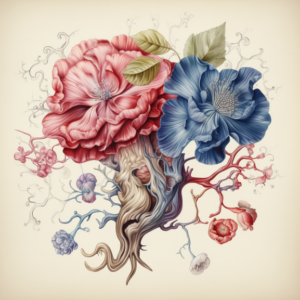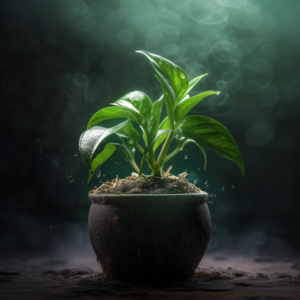Are you feeling blue and searching for new ways to tackle your depression? You’re not alone, as over 16.1 million American adults are also going through this tough journey. In this blog post, we’ll explore alternative treatments beyond conventional therapy that may help alleviate symptoms of depression.
Stay tuned; it’s time to uncover these healing paths together!
Key Takeaways
- TMS therapy and ketamine therapy are alternative treatments for depression that have shown effectiveness in managing depressive symptoms.
- Non-medical alternative treatments such as psychotherapy, exercise, dietary changes, herbal remedies, light therapy, acupuncture, and vagus nerve stimulation can also be viable options for managing depressive symptoms.
- It is important to consult with a healthcare professional before starting any new treatment regimen to ensure the safest and most effective approach for managing depression symptoms.
TMS Therapy for Depression
TMS therapy, also known as Transcranial Magnetic Stimulation, is a noninvasive procedure that uses magnetic fields to stimulate specific areas of the brain to treat depression.
Effectiveness of TMS Therapy
TMS therapy, otherwise known as Transcranial Magnetic Stimulation therapy, has shown significant results in managing depression. Studies reveal a remarkable reduction in depressive symptoms for patients who didn’t respond well to standard treatments.
The repetitive sending of magnetic pulses into the brain stimulates nerve cells, thereby improving mood regulation and warding off depression. Clinical trials indicate that this non-invasive technique brings about substantial improvement within one to four weeks of treatment initiation.
It’s undoubtedly an effective tool in the arsenal against major depressive disorders and finding its place amongst alternative therapies for mental health well-being.
Side Effects of TMS Therapy
While TMS therapy provides an innovative approach to tackling depressive symptoms, it carries potential side effects. Here are a few of them:
- Scalp discomfort during and after treatments
- Headaches
- Lightheadedness
- Uncommonly, seizures
- A change in cognitive function is also possible but rare.
- Hearing loss if ear protection isn’t used during treatment.
Ketamine Therapy for Depression
Ketamine therapy for depression includes the use of Spravato ketamine treatment and IV ketamine treatment, both of which have shown effectiveness in managing depressive symptoms.
Spravato Ketamine Treatment
Spravato is a nasal spray that contains esketamine, a variant of the anesthetic, ketamine. FDA-approved in 2019 for those with resistant depression, it has helped patients who have not responded to other treatment methods.
Users administer Spravato under medical supervision due to potential side effects like nausea or disorientation. After taking the dose, patients must stay at their doctor’s office for two hours for monitoring.
Clinical trials found that Spravato combined with an oral antidepressant can significantly reduce depressive symptoms and improve mood over time making it an innovative approach among alternative treatments for depression.
IV Ketamine Treatment
IV Ketamine treatment is a promising alternative therapy for depression. It involves the administration of ketamine through an intravenous (IV) infusion. Unlike other treatments, IV ketamine treatment works rapidly, often providing relief within hours or days.
The effectiveness of this therapy has been studied extensively and has shown positive results in treating both major depressive disorder and treatment-resistant depression. IV ketamine treatment offers hope to those who have not responded well to traditional antidepressant medications.
Effectiveness of Ketamine Therapy
Ketamine therapy has shown promising results in the treatment of depression. Studies have indicated that ketamine can rapidly alleviate depressive symptoms, even in individuals who do not respond well to traditional antidepressants.
The effectiveness of ketamine therapy lies in its ability to target and regulate certain neurotransmitters in the brain, such as glutamate, which are believed to play a role in mood regulation.
This innovative approach offers hope for those seeking relief from depression and provides an alternative option when other treatments have proven ineffective.
Non-medical Alternative Treatments for Depression
Psychotherapy, exercise, dietary changes, herbal remedies, light therapy, acupuncture, and vagus nerve stimulation are some of the non-medical alternative treatments for depression.
Psychotherapy
Psychotherapy is a popular non-medical alternative treatment for depression. It involves talking with a trained therapist to explore and address the underlying issues that contribute to depression.
Through regular sessions, individuals can gain insight, learn coping skills, and develop healthier ways of thinking and behaving. Various types of psychotherapy, such as cognitive-behavioral therapy (CBT) and interpersonal therapy (IPT), have been shown to be effective in reducing depressive symptoms.
This holistic approach focuses on the individual’s emotional well-being and helps them regain control over their thoughts and emotions.
Exercise
Regular exercise has been proven to have a positive impact on mental health and can be an effective treatment for depression. Physical activity releases endorphins, which are chemicals in the brain that act as natural mood boosters.
Engaging in exercises like brisk walking, jogging, or cycling can help reduce symptoms of depression by increasing the production of these feel-good hormones. Additionally, exercise promotes better sleep, reduces stress levels, and improves overall well-being.
Incorporating regular physical activity into your routine can be a nonmedical and inexpensive way to alleviate depressive symptoms and improve your mental health.
Dietary Changes
Making dietary changes can have a positive impact on managing depression. Here are some alternative approaches to consider:
- Increase intake of Omega-3 fatty acids by consuming foods like fish, walnuts, and flaxseeds.
- Incorporate more fruits and vegetables into your diet for their mood-enhancing nutrients.
- Reduce or eliminate processed foods and sugars, as they can contribute to mood swings and low energy levels.
- Stay hydrated by drinking plenty of water throughout the day.
- Choose whole grains over refined carbohydrates to maintain stable blood sugar levels.
- Include lean proteins, such as chicken, turkey, and tofu, in your meals to support proper brain function.
- Consider adding probiotic-rich foods, like yogurt or fermented vegetables, to promote a healthy gut microbiome.
Herbal Remedies
Herbal remedies can be a non-medical alternative treatment for depression. Here are some herbal remedies that may help alleviate depressive symptoms:
- St. John’s Wort: This herb is commonly used to treat mild to moderate depression.
- Saffron: Studies have shown that saffron may have antidepressant effects.
- Lavender: The scent of lavender has been found to have calming and mood-enhancing properties.
- Chamomile: Chamomile tea is known for its calming effects and may help reduce anxiety and improve sleep.
- Ginseng: This herb has been used in traditional medicine to improve energy levels and reduce stress.
Light Therapy
Light therapy, also known as bright light therapy or phototherapy, is a non-medical alternative treatment for depression that involves exposure to specific wavelengths of light. This therapy aims to simulate natural sunlight and regulate the body’s circadian rhythm, which can be disrupted in people with depression.
By sitting near a special light box for a certain amount of time each day, individuals may experience improved mood, increased energy levels, and reduced symptoms of depression. Light therapy is generally safe and well-tolerated, but it is important to follow the recommended guidelines and consult with a healthcare professional before starting this treatment.
Acupuncture and Vagus Nerve Stimulation
Acupuncture and Vagus Nerve Stimulation are two alternative treatments for depression that have shown promising results. Acupuncture involves the insertion of thin needles into specific points on the body to stimulate energy flow and restore balance.
It is believed to release endorphins and promote relaxation, which can help alleviate symptoms of depression. On the other hand, Vagus Nerve Stimulation uses a small device implanted in the chest to send electrical impulses to the vagus nerve, which connects to areas of the brain involved in mood regulation.
This stimulation can improve depressive symptoms by modulating brain activity. While more research is needed, these two alternative treatments offer potential options for those seeking alternative treatments for depression.
Choosing the Right Alternative Treatment for Depression
Choosing the right alternative treatment for depression is a crucial step in finding relief and managing symptoms. With so many options available, it can feel overwhelming to determine which approach is best for you.
It’s important to consider your individual needs and preferences when making this decision. Some people find that psychotherapy, such as cognitive-behavioral therapy or interpersonal therapy, works well for them.
Others may prefer non-medical approaches like exercise, dietary changes, herbal remedies, light therapy, acupuncture, or vagus nerve stimulation. It may also be helpful to consult with a healthcare professional who specializes in alternative treatments for depression to get personalized recommendations based on your specific situation.
Ultimately, choosing the right alternative treatment involves finding what resonates with you and aligns with your overall wellness goals.
Remember that while alternative treatments can be beneficial for many individuals experiencing depression symptoms, they should not replace conventional therapies prescribed by medical professionals.
It’s always essential to consult with a healthcare provider before starting any new treatment regimen and discuss potential risks and benefits to ensure the safest and most effective approach for managing your depression symptoms.
Conclusion
In conclusion, there are numerous alternative treatments available for depression that go beyond conventional therapy. TMS therapy and ketamine therapy have shown effectiveness in treating depression, although they may have some side effects.
Additionally, non-medical alternative treatments such as psychotherapy, exercise, dietary changes, herbal remedies, light therapy, acupuncture and vagus nerve stimulation can also be viable options for managing depressive symptoms.
It’s crucial to explore these alternatives and choose the right treatment approach that works best for each individual’s unique needs.
